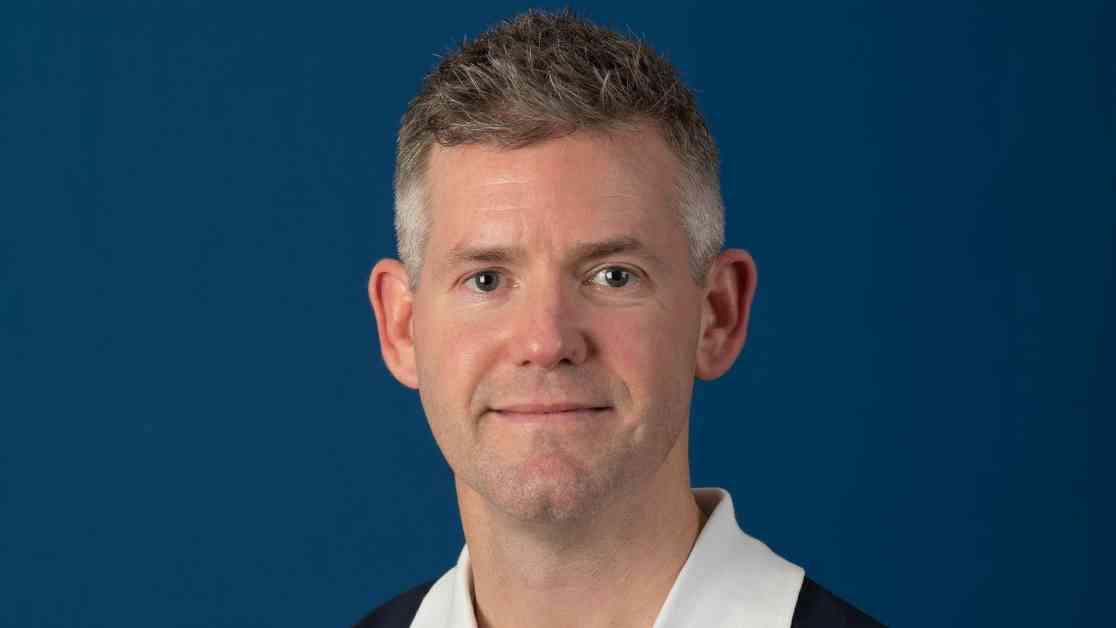John McFall, a former paralympian sprinter from Cardiff, has made history by being medically certified to embark on a long-duration space mission at the International Space Station. The European Space Agency (ESA) announced this groundbreaking achievement at a news conference on Friday, marking McFall as the first British astronaut with a physical disability to be cleared for such a mission.
McFall expressed his excitement and gratitude, stating, “It’s great to have completed the feasibility study and demonstrated there is no technical showstopper for me flying to the International Space Station.” He emphasized that the significance of this milestone extends beyond his personal accomplishment. “Today’s announcement is not just about me personally getting medically certified to fly long-duration missions. It’s much more than that,” McFall added, highlighting the cultural shift in how individuals with disabilities are perceived and treated.
The journey to this momentous achievement began in 2022 when the ESA launched the Fly! feasibility study to assess the challenges of sending a disabled astronaut to the ISS. John McFall, a father of three, was selected to participate in the program as a member of the ESA astronaut reserve. The rigorous testing process lasted around a month and involved various medical exams, during which McFall had to demonstrate his ability to perform required tasks.
Embracing Inclusivity in Space Exploration
Space has never been a natural environment for human beings, as the effects of microgravity can affect anyone. However, John McFall’s certification as medically fit to live and work on the International Space Station signifies a significant step towards inclusivity in space exploration. His participation in the ESA’s feasibility study has shattered preconceived notions about physical disabilities and space travel.
During an interview with Sky News, McFall expressed his view on the artificial barriers created by labels like “parastronaut.” He emphasized the importance of inclusivity and encouraged others with physical disabilities to pursue their dreams, showcasing that space travel is not an impossible feat. This milestone serves as an inspiration for individuals who may have believed that their disabilities precluded them from such extraordinary opportunities.
ESA’s director of human and robotic exploration, Daniel Neuenschwander, commended McFall’s achievement, stating, “John is part of the pool of astronauts eligible to fly to the International Space Station without being hindered by political considerations.” This recognition underscores Europe’s commitment to inclusivity and reflects the agency’s core values of responsible, sustainable, and sustained space exploration.
From Athlete to Astronaut
John McFall’s journey from a Paralympic sprinter to a certified astronaut exemplifies perseverance and resilience. After losing his right leg in a motorcycle accident at the age of 19, McFall defied the odds by learning to run again and excelling as a professional track and field athlete. His transition from sports to becoming an orthopaedic surgeon further demonstrates his determination to overcome challenges and pursue new horizons.
As McFall reflects on his athletic achievements, including representing Great Britain and winning multiple medals, including a bronze at the 2008 Paralympics, his journey serves as a testament to the human spirit’s capacity for resilience and adaptation. His dedication to pushing boundaries and redefining limitations has paved the way for individuals with physical disabilities to dream beyond conventional boundaries.
In conclusion, John McFall’s certification as the first disabled British astronaut to undertake a mission at the International Space Station signifies a monumental achievement in space exploration. His journey not only breaks barriers but also inspires a new generation of space enthusiasts to embrace inclusivity and diversity in the quest for understanding the cosmos. As McFall looks towards the next phase of his mission, the world eagerly anticipates the groundbreaking discoveries and advancements that will emerge from his extraordinary voyage.










